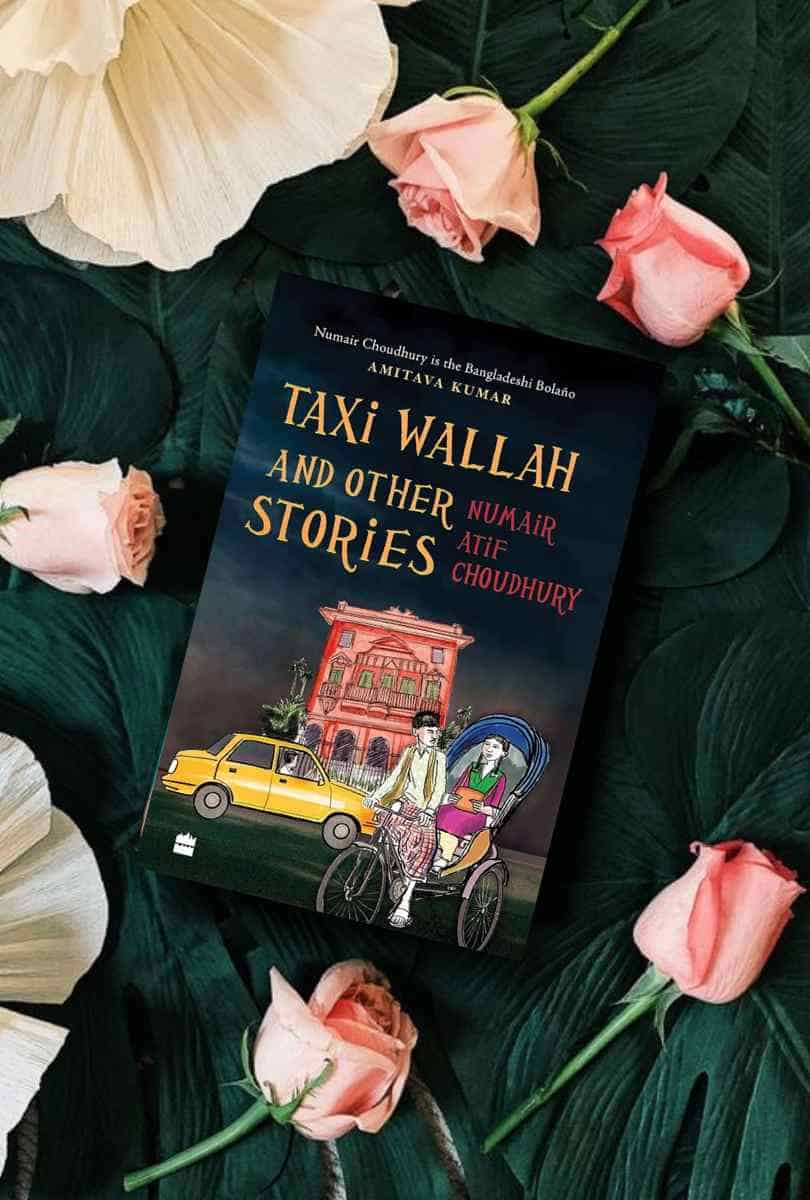PLOT: 3/5 CHARACTERS: 3/5 CLIMAX: 3/5 WRITING STYLE: 3/5 ENTERTAINMENT QUOTIENT: 3/5
Praised as the Bangladeshi Bolano by Amitava Kumar, Numair Atif Choudhury presents a nuanced picture of contemporary Dhaka life. “Taxi Wallah and Other Stories” follows his first and last novel, “Babu Bangladesh!” That was posthumously published and was shortlisted for the Shakti Bhatt Book Prize 2019. It gives readers a taste of the intricacy with which Choudhury delves into the nooks and crannies of the city through diverse characters, most of whom happen to be on the lower side of the class-based hierarchical order.
The book is a collection of 11 unique, heartrending, and socially significant short stories that begin with the tale of the eponymous Taxi Wallah, who narrates a usual day of going about his work in driving people around the city of Dhaka. The narrative is in the first-person point of view, relayed by the taxi driver who happens to take a white foreigner from the airport to a hotel in Purbani.
The dichotomy of driving from a posh locality like Gulshan to Moakhali, where the driver resides, on the way to Purbani is rife with contrasts that signify the societal divide along the lines of class. The thematic significance of class is juxtaposed with the struggles faced by the driver in looking after his two sons, as he makes a meager amount on a daily basis and feels the pangs of daily drudgery knocking him out.
He feels that he may leave the city of Dhaka, yet, the city will continue to haunt his senses. This brings in a sense of the inability of those in the lower strata of society who struggle to progress or improve their societal positioning because their request for better pay and better terms of pay is considered a means of harassing the rich. This is noted in the scene where there is a bargain between the driver and the white passenger that abruptly concludes the story.
Another such character is Rabia, who is the protagonist of the short story by the same name. She is a household help and works for a family with an unnamed character addressed as apa. Rabia seems to have been working for that family since she was young and also served as a playmate for apa.
Once again, the first-person narrative point of view discloses the rules and regulations that Rabia is constantly to keep in mind, bringing forth a master-slave binary. This is noted in the virtues of humility, obedience, assiduity, modesty, and hospitality that Rabia must comply with to ensure that the people for whom she works are never offended with her.
The long-term relationship between apa’s family and Rabia creates a bond whose basis is only service. Once that service is not required, such as when apa moves to America, then Rabia also becomes less important or almost unnecessary. The fact that when apa visits annually from America, Rabia’s workload increases does little to deepen the bond between her and apa. While apa seems to be getting financially better off after moving abroad where machines do all the work that Rabia does, there is little change for Rabia.
Another interesting and perhaps the shortest story is “Thief.” Other engaging stories among all the engaging stories are “Chokra” and “On The Way,” to name a few. The protagonists are more like types, reflecting the gross inequalities in Dhaka society, which is quite applicable to the social setup of any other metropolitan city in the world. The simplicity with which the complexity of life is shown is raw, realistic, and touching.
The stories hold a mirror to the inadequacies of society, the inability of people to connect with one another on the grounds of humanity as they allow class differences to prevail. The sentences are simple, short, and plainly framed. The focus is on the plot development and the disclosure of the climax of each story that takes a turn and leads to a whole new direction.
There are several colloquial Bengali terms used, adding to the rusticity of the writing style. It creates an ambiance of simple yet tasteful plot construction that does not digress and does not need to have too many characters scattered all over to create an impact. The content raises curiosity and provides an alternative lens to view the other side of city life that is not all glittery.
Taxi Wallah and Other Stories is barely a little over 100 pages and makes for a quick read. However, the suspense element in the narrative style and the ability to covertly display the loopholes in society, the double standards, and the vanity of the so-called well-off that upholds social disparity with insensitivity make for an eye-opening read.
The work of Choudhury has been collectively appreciated by Tahmima Anam, Kamila Shamsie, Hindustan Times, Huffington Post, and their likes for his ingenuity, eye for detail, and intelligence. Sadly, he is an author gone too soon, and it is heart-wrenching to note that he passed away in a tragic accident in 2018.
Can’t wait to read it? Buy your copy of Taxi Wallah and Other Stories right away!
